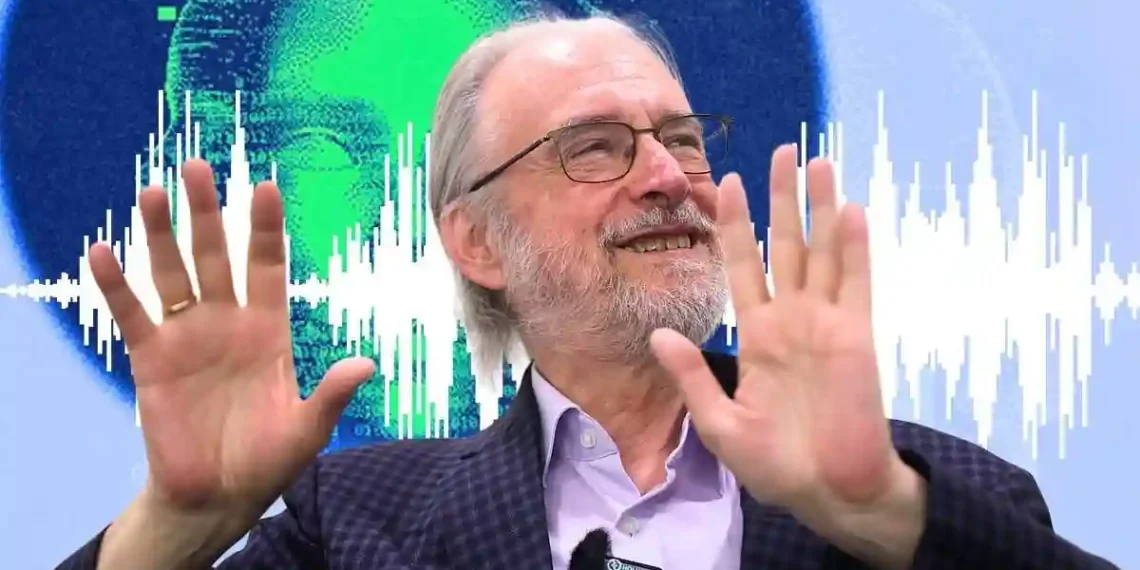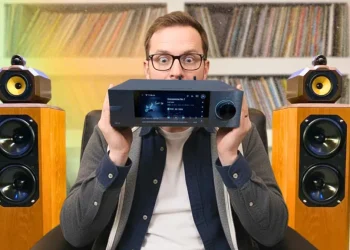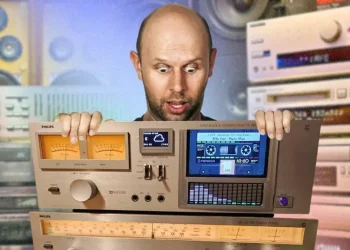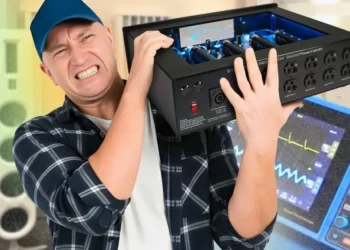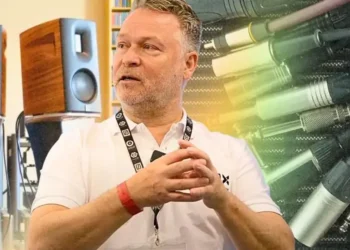MP3 Creator Says Audio Quality Has Peaked—But He’s Building the Future of Sound
Your headphones might soon know more about your environment than you do.
Dr. Karlheinz Brandenburg, the German engineer who revolutionized music with the MP3 format in the ’90s, believes we’ve hit the ceiling when it comes to stereo audio quality. But he’s not done yet. Now leading Brandenburg Labs, he’s pioneering a new frontier: Personalized Auditory Reality (PARty)—headphones that can hear, think, and adapt like you.
Brandenburg says we’ve pushed stereo sound as far as human ears can handle.
“For compression of just two channels, I think we’ve reached the glass ceiling,” he said in a recent interview. According to him, the limitations aren’t in the tech—it’s in our biology. Our ears simply can’t perceive much more from traditional two-channel audio.
Though he also helped develop the more advanced AAC format, MP3 remains popular due to its universal compatibility. But when it comes to audio quality? Brandenburg says it’s time to move beyond stereo entirely.
The future of audio, Brandenburg believes, lies in spatial and contextual sound—audio that mimics how we naturally hear in real life. His vision? Smart, always-on headphones that can enhance or suppress specific sounds based on your surroundings and preferences.
“These headphones should be like glasses,” he explained. “You wear them all day. You hear the world around you, but improved.”
They’ll use AI to identify and respond to real-world situations. Imagine your headphones automatically lowering background chatter in a noisy café, but boosting the voice of the person you’re talking to.
“If there are people yelling—I don’t want to hear them,” Brandenburg said. And your headphones will know that.
He predicts these “super-hearing” devices will hit shelves within four years, at consumer-friendly prices, and sell in the tens of millions.
Most spatial audio systems today rely on basic tricks: fixed presets, limited head tracking, or static room simulations. Brandenburg Labs is going deeper—literally modeling how your brain processes sound.
“Sound changes all the time when I move in a room,” he said. His system tracks your head movements and environmental reflections in real-time, adjusting audio on the fly to feel as natural as being there.
And these reflections aren’t just for realism—they help your brain understand where sound is coming from.
“Humans are a little bit like bats,” Brandenburg said. “We use reflections to locate sound without even realizing it.”
While top-tier headphones from Apple, Sony, and Sennheiser already offer head tracking and spatial audio, Brandenburg’s approach aims to go beyond.
| Feature | Current Tech | Brandenburg’s Vision |
|---|---|---|
| Head Tracking | Yes | Yes |
| Personalized Sound Profiles (HRTF) | Some (e.g. Apple) | Core to the experience |
| Room Modeling | Basic or preset-based | Dynamic, real-time simulation |
| Adaptive Noise Control | Yes | AI-powered, context-sensitive |
| Sound Filtering | Limited | Suppresses unwanted sounds, boosts conversations |
| Purpose | Mostly media | All-day, real-world use |
| AI Integration | Basic scene detection | Advanced situational awareness |
Brandenburg isn’t just improving headphones—he’s redefining how we interact with sound in daily life.
Brandenburg Labs has already launched its high-end Okeanos Pro headphones for professional audio engineers. Priced at €5,000, these studio-grade cans offer near-zero latency and simulate full speaker arrays inside your headphones.
“The system simulates a speaker system in a familiar studio environment,” Brandenburg said. It even includes dedicated hardware and a web interface to avoid taxing your computer.
A consumer version—Okeanos Home—is expected by late 2026. It will offer premium spatial sound for everyday use: music, movies, gaming, and more.
And after that? Personalized Auditory Reality will take things even further.
Dr. Brandenburg changed how the world listens with MP3. Now, he’s aiming to change how we hear altogether.
With AI-driven, environment-aware headphones on the horizon, the next revolution in sound isn’t just about quality—it’s about how audio fits into your life.
And according to the man who made music portable, the future sounds very real.
This article was rewritten by JournosNews.com based on verified reporting from trusted sources. The content has been independently reviewed, fact-checked, and edited for accuracy, neutrality, tone, and global readability in accordance with Google News and AdSense standards.
All opinions, quotes, or statements from contributors, experts, or sourced organizations do not necessarily reflect the views of JournosNews.com. JournosNews.com maintains full editorial independence from any external funders, sponsors, or organizations.
Stay informed with JournosNews.com — your trusted source for verified global reporting and in-depth analysis. Follow us on Google News, BlueSky, and X for real-time updates.
